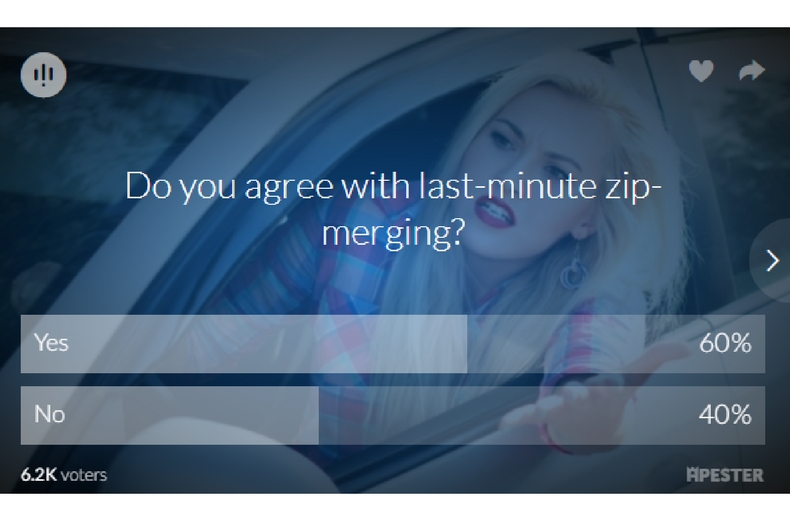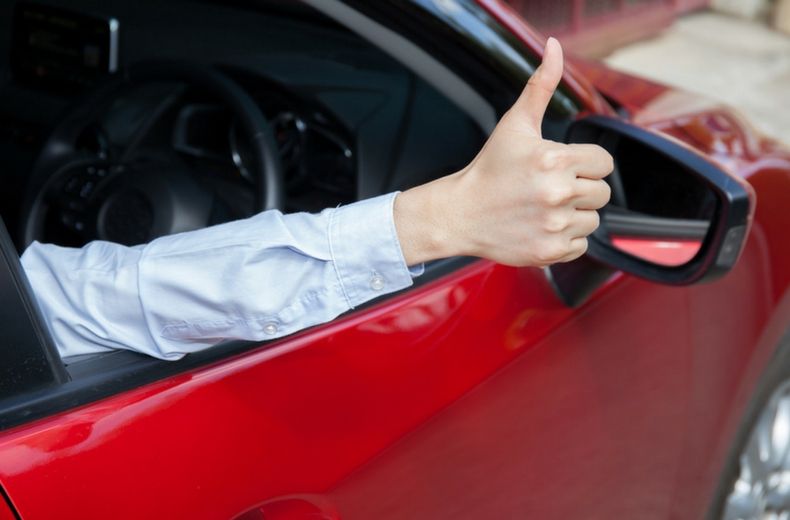It's a question we posed three weeks ago and after a resounding 6,500 votes (and counting) we have a majority answer.
Although the issue clearly divided opinion - the debate continues to rage in the heated comments suggestion below the original article - for the time being the majority has spoken and deemed last-minute merging as the correct practice with 60% of the votes.
The results

Many people believe if all motorists were taught to use all the available road then congestion and tailbacks would be reduced.
However, many acknowledged more education and clearer signs are needed to get motorists working together.
A number of comments have pointed out this re-education would be necessary to change attitudes and encourage all road users to filter evenly, as it can feel that some are trying to take advantage of others' politeness.
Some comments against merging include citing people's understandable frustration at having someone cut in front of them.
Simon Brown said: "Advertising indicates that as soon as you see the red cross, indicating a lane is blocked, you should change lanes.
"So people adhering to this rightly feel aggrieved when other drivers seem to have ignored the instruction and go whizzing passed queuing traffic and cutting in ahead, if this is now deemed the correct course of action then advertising needs to reflect this."
David Newcomb, who agrees with zip-merging, said: "I use zip merging all the time. I also merge in turn at the point where one of the lanes disappears. It just seems obvious to me because the order is defined.
"You are not waiting for someone to wave you in or let you in so traffic flows more seamlessly."
John Woo, however, thinks the problem is clear, Mr Woo said: "The problem is some novice drivers are not able to understand the difference between merging lanes and last minute cutting up - e.g. when a road splits into two, left lane turning left and one right lane turning right and speeding past all the queued cars to the point at which the road splits and cutting in last minute, with the objective to 'jump' out the queue."
Mr Woo is actually referring to smart motorways, which have a different driving practice altogether from that of the merge in turn procedure that requires zip-merging. Driving in a lane with a red X above it is illegal.
But the point remains these practices are not clearly signed and more clarification is needed on the correct driving practices in different scenarios to help motorists.
It is this lack of awareness that is actually causing confusion with drivers which leads to many getting frustrated at their fellow road users.
What do you think?

RAC sale – up to 33% off*
• Roadside cover from £5.29 a month†
• We get to most breakdowns in 60 mins or less
• Our patrols fix 4/5 breakdowns on the spot

















